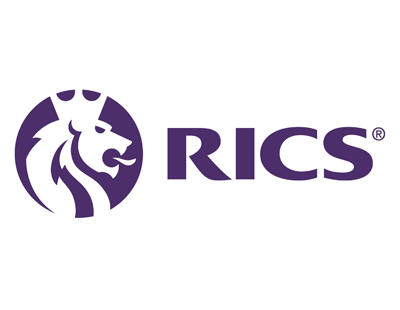BDO’s report also gave the lowest possible 'no assurance' rating for the effectiveness of RICS’ financial controls - something which Levitt has described as being “the most significant criticism an auditor can make” of an organisation.
Other allegations have been swirling this year regarding four RICS non-executive directors who wanted the organisation to act on the BDO report’s concerns, but who instead had their appointments terminated. They have now received apologies from the RICS.
So today’s new rules include what RICS’ senior figures call "explicit requirements for firms to encourage diversity and to ensure a fair and inclusive profession, and to support all surveyors regardless of their background or differences, across the world.”
The new code - which takes effect from February - also sets out refreshed requirements for professionals maintaining their skills and expertise – most importantly, including new expectations for all members in respect of advice on sustainability issues, helping clients in the drive to meet targets set by governments.
Dame Janet Paraskeva, chair of the standards and regulation board at RICS, says: “The advice of RICS professionals around the world underpins the successful management of our built and natural environment. With so many complex challenges facing decision makers, this profession’s high standards of expertise and ethical conduct have never been more important.
“Standards in professional life must evolve to reflect modern-day expectations of clients and society at large, in order to maintain confidence. These revised Rules of Conduct will support our members and those that depend on their advice to continue addressing the challenges of today and tomorrow”
Here are the new rules in their entirety:
RULE 1: Members and firms must be honest, act with integrity and comply with their professional obligations, including obligations to RICS.
Example behaviours
1.1 Members and firms do not mislead others by their actions or omissions, or by being complicit in the actions or omissions of others.
1.2 Members and firms do not allow themselves to be influenced improperly by others (as a result of, for example, giving or receiving work referrals, gifts, hospitality or payments) or by their own self- interest.
1.3 Members and firms identify actual and potential conflicts of interest throughout a professional assignment and do not provide advice or services where a conflict of interest or a significant risk of one arises, unless they do so in accordance with the current edition of Conflicts of interest, RICS professional statement.
1.4 Firms have effective processes to identify actual and potential conflicts of interest, to enable appropriate decisions to be made on whether to accept work, and to keep records of decisions made about actual and potential conflicts of interest.
1.5 Members and firms providing advice and opinion in a professional context do so honestly and objectively based on relevant and reliable evidence, and firms have processes to ensure that directors, partners and employees do so.
1.6 Members and firms are open and transparent with clients about their fees and services.
1.7 Members and firms act to prevent others being misled about their professional opinion.
1.8 Members and firms do not take unfair advantage of others.
1.9 Members and firms protect confidential information and only use or disclose it for the purposes for which it was provided, where they have the necessary consent to do so or where required or permitted by law.
1.10 Firms keep client money safe and have appropriate accounting controls.
1.11 Members do not misuse client money and comply with controls intended to keep it safe.
1.12 Members and firms do not facilitate any financial crime including money laundering, tax evasion, bribery or corruption. Firms have effective processes to prevent directors, partners or employees from doing so.
-
RULE 2: Members and firms must maintain their professional competence and ensure that services are provided by competent individuals who have the necessary expertise.
Example behaviours
2.1 Members and firms only undertake work that they have the knowledge, skills and resources to carry out competently.
2.2 Members and firms supervise any employees undertaking work for them and ensure that these employees have the necessary knowledge, skills and resources to do their tasks competently.
2.3 Members and firms check that subcontractors have the necessary knowledge, skills and resources to do their tasks competently.
2.4 Members and firms reflect on the work they have undertaken and its impacts, and consider how they might apply what they have learned to their future work.
2.5 Members maintain and develop their knowledge and skills throughout their careers. They identify development needs, plan and undertake continuing professional development activities to address them and are able to demonstrate they have done so. Firms encourage and support directors, partners and employees to maintain and develop their knowledge and skills, and check that they are complying with CPD requirements set by RICS.
2.6 Members and firms stay up to date and comply with relevant legislation, codes of practice and other professional and relevant technical standards. Firms ensure that their directors, partners and employees do so.
-
RULE 3: Members and firms must provide good-quality and diligent service.
Example behaviours
3.1 Members and firms understand clients’ needs and objectives before accepting any professional work.
3.2 Members and firms agree with clients the scope of the service to be provided and its limitations, and timescales for the work.
3.3 Firms inform clients that they are regulated by RICS and that they may need to disclose records to RICS where required for regulatory purposes.
3.4 Members and firms inform clients promptly and seek their agreement if it is proposed that any of the terms of engagement or estimated fees or costs be changed.
3.5 Members and firms undertake their work in a timely manner; with due care, skill and diligence, and in accordance with RICS technical standards.
3.6 Members and firms communicate to clients the material information on which their professional advice and opinion is based.
3.7 Members and firms communicate with clients and others clearly and in a way they can understand.
3.8 Members and firms ensure that any referral or introduction they make for a client is in the best interests of the client and inform clients about any financial or other benefits to the member or their firm from a referral or introduction.
3.9 Members and firms keep proper records of their work and decisions in enough detail to allow them to answer questions from clients and to allow their work to be audited for quality assurance or regulatory purposes.
3.10 Members and firms, when advising clients about projects, encourage solutions that are sustainable in that they minimise harm and deliver balanced economic, social and environmental benefits.
3.11 Members and firms understand the risks and benefits of using relevant technology.
3.12 Members and firms check that all data used is accurate and up to date, is kept securely, and that they have proper legal rights to use it and, where required, share it.
3.13 Firms have effective quality assurance processes for their work.
-
RULE 4: Members and firms must treat others with respect and encourage diversity and inclusion.
Example behaviours
4.1 Members and firms respect the rights of others and treat others with courtesy.
4.2 Members and firms treat everyone fairly and do not discriminate against anyone on any improper grounds, including age, disability, gender reassignment, marriage or civil partnership, pregnancy or maternity, race, religion or belief, sex or sexual orientation.
4.3 Members and firms do not bully, victimise or harass anyone.
4.4 Firms check that supply chains do not involve modern slavery or other abuses of the workforce.
4.5 Members and firms report abusive labour practices to proper and recognised authorities if they become aware of, or suspect, them.
4.6 Members and firms work cooperatively with others.
4.7 Members and firms develop an inclusive culture in their workplaces, support equal access and opportunity for all, and identify and address unconscious bias.
-
RULE 5: Members and firms must act in the public interest, take responsibility for their actions and act to prevent harm and maintain public confidence in the profession.
Example behaviours
5.1 Members and firms question practices and decisions that they suspect are not right, and raise concerns with colleagues, senior management, clients, RICS or any other appropriate person, body or organisation where they believe in good faith that it is necessary to do so. Firms provide processes to allow and support individuals within the firm to raise concerns with senior management.
5.2 Members and firms support directors, partners, employees, colleagues or clients who have acted in good faith to report concerns.
5.3 Members and firms ensure that public statements made by the firm, or in which members are (or could be) identified as members of the profession, do not undermine public confidence in the profession.
5.4 Members and firms respond to complaints made against them promptly, openly and professionally.
5.5 Members and firms do not dissuade complainants from approaching an alternative dispute resolution provider, RICS or any other regulatory body.
5.6 Members and firms cooperate with investigations into complaints or concerns, and provide information where it is reasonably requested and they can do so lawfully.
5.7 Members consider the effect that any health conditions may have on their competence or ability to undertake professional work, and inform management or clients where they require reasonable adjustments or are unable to continue to undertake work competently.
5.8 Members and firms manage their professional finances responsibly.
5.9 Members and firms take appropriate action when they consider that the rules have been breached, and report suspected significant breaches of the Rules of Conduct by themselves or others to RICS.













.png)


.jpg)
.jpg)





%20-%20IMAGE%20Client%20Accounting%20%E2%80%93%20what%20are%20your%20options.jpg)


.png)
.png)
.png)
%20(002).png)






%20(002).jpg)



.png)




Join the conversation
Jump to latest comment and add your reply
All very well producing Rules and Regulations for Members & Firms (mostly stating what any self respecting professional would do anyway) but what about producing some robust regulations for those at the top of the organisation to follow! That appears to an outsider where the issues have occurred. Too full of their own self importance perhaps?
It's the chartered surveyers that I feel sorry for. Professional people who have had to adhere to draconian rules and pay high sub fees, whilst those at the very top, let them down. RICS has lost all respect with surveyors and the general public. Scrap RICS and form a new body. Just clearing a few bd people at the top, will not give RICS a new shining image.
As an organisation its only "battered" due to those at the top.
Your average surveyor is a highly competent and hard working individual who would adhere to almost all of those standards anyway.
I fear this is a "Bojo style" master class in pointing the finger elsewhere to deflect from where the real problem is....... at the very top and it needs a big broom and hearty sweep out. The RICS reputation has only been damaged by the incompetents at the top, nowhere else.
Damage has been done for RICS. What a fall from grace for an organisation that was once a byword for decency, integrity and trust, at least as far as property is concerned.
Now forever tainted.
A tone deaf response from RICS to the members it has betrayed. I also haven't seen an apology from RICS to its members yet.
Please login to comment